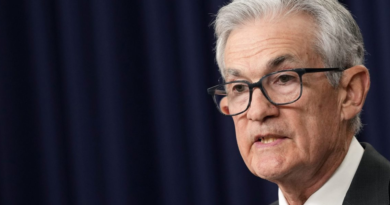I run a $100M VC fund for immigrants—here’s why they’re often better than those born here
I spent the first years of my life in the Soviet Union in the 1970s. Though I was young, I remember feeling that the goal of each individual was to fit in. There was little regard for individual rights, and ostracization was dangerous.
Only later did I understand that not fitting in could be an advantage. That taking a risk—a leap of faith into a new country, for example—could be an understated superpower in achieving “impossible” ambitions.
A one-way trip to a foreign land
I arrived in the United States as a child refugee in 1979. Settling into a foreign land is a learning experience that never leaves you. I had to rapidly take on this country’s language, culture, and traditions, meet new people and be understood. Decades later, I credit the experience with giving me the relentless drive to launch successful tech companies—and then to seek that same spirit out in others.
After studying computer science at Columbia University, I moved to Boston to study at MIT. Perhaps my eagerness to devour new experiences (as well as my need for cash) compelled me to join the notorious MIT blackjack teams after seeing a flier on campus.
Our little group made millions from the casinos counting cards, inspiring books and the movie 21. I was giving oxygen to the part of me that wanted to stick it to the man—that chip on my shoulder that came with being perceived as an outsider.
That’s also where I started meeting people who wanted to take risks within a disciplined and near-scientific framework. I realized that these were my people. Later on, that willingness to take calculated risks became a constant connection back to the immigrant experience.
It wasn’t a sustainable lifestyle, however. I began to crave the satisfaction of using my skills to help people. I launched a startup to improve website performance in the early days of the world wide web. I authored one of the first internet payment protocols. I had some exits and used that momentum to become an angel investor for some young companies, eventually becoming managing director of Techstars Boston.
But one of the crowning achievements of my career was to be able to give other immigrants the opportunity to launch exceptional businesses by launching One Way Ventures exclusively for immigrant founders in 2018. I’m motivated by my goal of defending people’s right to live, work, and start companies where they please, and I was spurred to launch the fund in part by Donald Trump’s presidency and its repudiation of migrants.
Almost seven years on, and the decision to back exceptional immigrant founders—not just a moral choice but a financial one too—has performed well. Today 75% of portfolio companies from our 2018 fund are still active and operating, and that fund is up 2.5x on paper overall. We’ve backed industry disruptors like Brex, Chipper Cash, Nuvocargo, and KarmaCheck. And, I hope, we’ve helped strengthen the foundations of diverse entrepreneurship in the United States. By following our mission alone, we’ve put together a portfolio that’s 56% founded by minorities—far above the rest of the industry.
Why immigrants are a better bet
There’s strength—not weakness, as many might see it—that comes with building a life from scratch in unfamiliar territory. If people take that grit into entrepreneurship, they objectively have a greater chance at success.
This has already been borne out by multiple studies—immigrants in the U.S. have founded 55% of unicorns and 65% of top AI companies, and they are responsible for 36% of innovative output.
As it turns out, people who’ve migrated as adults, who have nothing and no one waiting for them when they arrive, and who are forced to learn a new culture and build a new network—they’re capable of going to extraordinary lengths to achieve their goals.
They are flexible in understanding diverse cultures, and therefore markets. They have a global mindset. And they’re less accepting of potential failure.
When faced with an existential challenge as a founder, they harness their conviction that they can achieve the impossible, that they can hustle for another month until they reach that key milestone—after all, they’ve beaten the odds before. You just don’t see that capacity to overcome hardship with native-born entrepreneurs.
Often, those entrepreneurs end up doing so much better because they steered their company through extreme pressure and into acceleration.
I also see the strength of the immigrant entrepreneur in the phenomenal community that has consolidated around us. Our mission has attracted a strong network of disparate immigrant communities around the idea that it’s our right to go wherever we want and build whatever we want in peace.
Our belief in the power of immigrant entrepreneurs has helped us to convince not only founders to invite us onto their cap table, but also unicorn immigrant founders to come onboard as mentors to our early-stage entrepreneurs—we’ve called this our Pathfinder Collective. We have dozens of limited partners who are predominantly immigrant founders we’ve previously invested in—which is in itself unusual in VC. Because immigrants have to work to seek out and build a community, they’re also less likely to take it for granted and more keen to pay it forward.
When I look back on my unconventional journey to where I am now, I’m reminded that it was at the moment that I stopped worrying about making the most money, and actually started caring more about doing good for others, that I was able to do better in all aspects of my life and career.
Perhaps as a nation we can do the same. If we thought more about directing our policies toward doing the right thing, respecting human rights, and striving for equality of opportunity, if we stopped worrying about creating walls and let people into the country because we recognize it as their right, then as a country we’ll grow stronger alongside those people who chose this nation to seek a better life.
Read more:
The opinions expressed in Fortune.com commentary pieces are solely the views of their authors and do not necessarily reflect the opinions and beliefs of Fortune.




